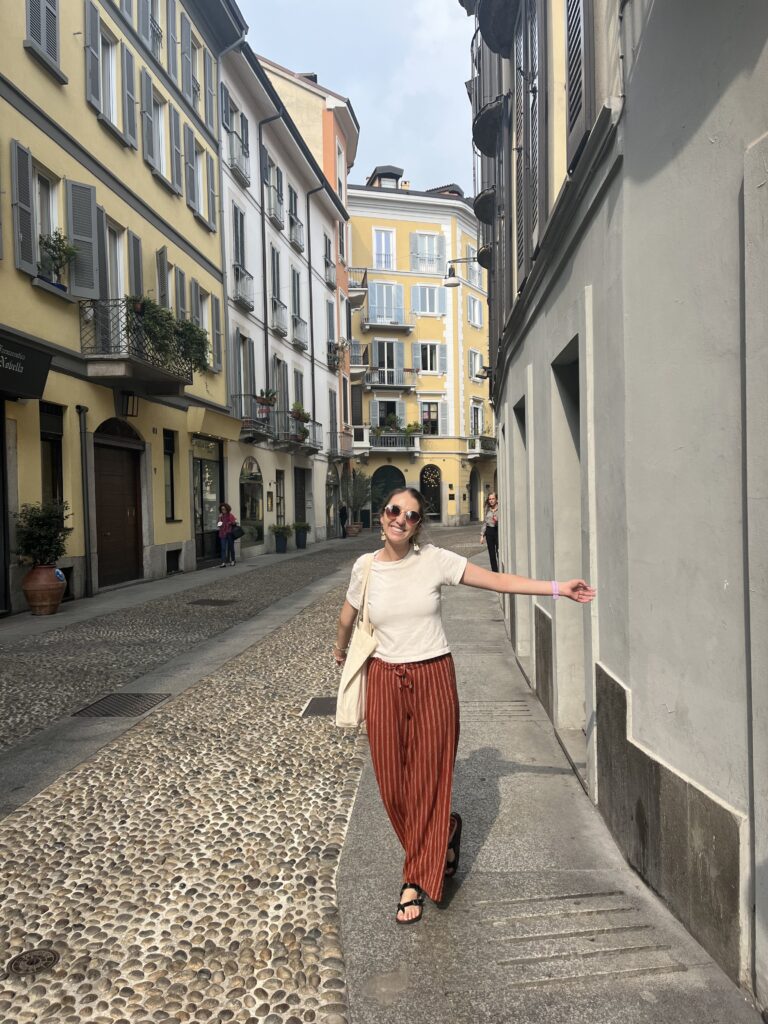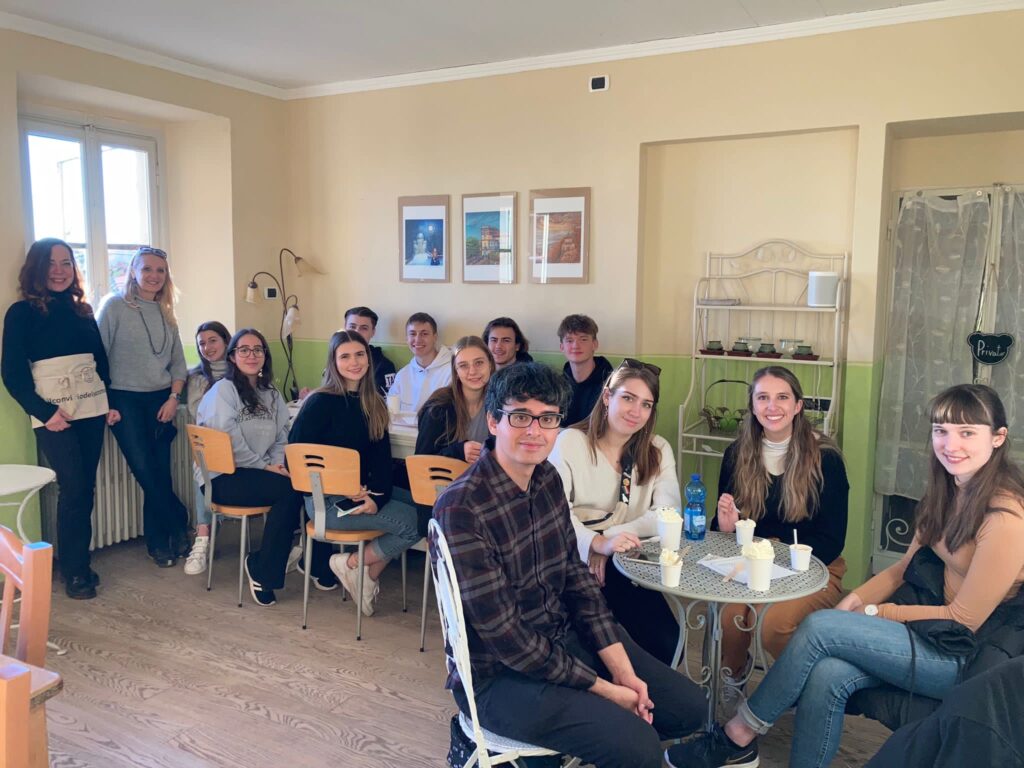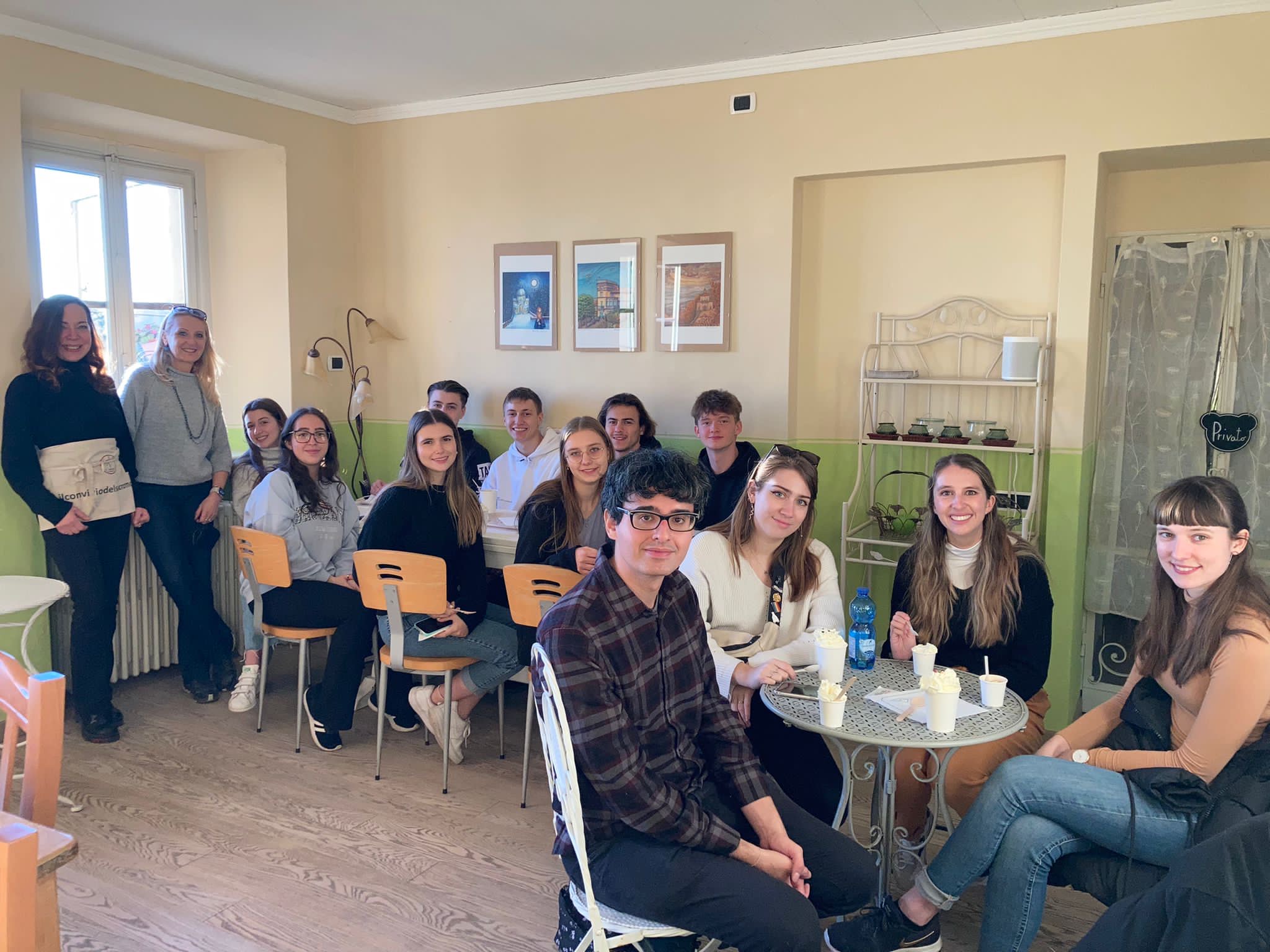Here is part 2 of Ellen Blackwell’s interview with Greenheart Travel. We suggest you read Part 1 before continuing.

GH: In our last chat, you spoke about using some of the job guidance information in applying for teaching jobs. What is that like? Do they give you resources or sit down and meet with you?
Ellen: So the assistant director at our school also helps with the training and she runs the job guidance and job placement assistant sessions. She has a lot of, you know, knowledge and connection specifically around Italy and within Florence to connect students to very specific places that are looking for teachers. But also through Via Lingua, the program that the TEFL program is through, they have a lot of connections around the world as well. So she gives us a lot of resources on where to find jobs, if she is aware of anyone looking for teachers at the time, making sure that those notices go out to us as well. And then just kind of like a broad overview. We talk about interviews, and we practice interview questions. We go through cover letters and actually create a cover letter to get feedback. We talk about CV’s and the same thing, create a CV and get feedback on that and just kind of talking through the process of searching for a teaching position and what you might face as you’re going through that process.
GH: Did any of your other classmates stay and use the resources as well?
Ellen: Yeah, we had a pretty big group of us actually that stayed after. Out of the 12, I think maybe like five or six of us stayed here for at least a few months. There were like five of us, I believe in Florence that stayed here in Florence and then one other who stayed in Italy but went to a different town and some stayed for, you know, a few months to finish out their tourist visa or stayed for the rest of the year. And I know three of us are still here now today, still working here.
GH: And they all went on to teach?
Ellen: Yeah, we all went on to teach. I think even the ones who stayed here for a while and went back home are teaching still in some capacity in the United States. And then the three of us that are still here, I believe, are still at least teaching a little bit. I know one of my classmates does a little bit in like the tourism industry and stuff like that now as well, but still doing some teaching on the side. So we’re all, we’re all still involved in some way.
GH: That’s so great to see them using the skills they gained while on program. We kind of touched on this but do you have any reflections on your time during either of the programs that stand out to you and helped you get to where you are today?
Ellen: I think I went in with not really like a huge expectation of what it was going to be. It was a lot more work than I thought. I wasn’t sure exactly how much work it would be. Projects and homework and things that are super necessary and really helpful. That really helped me like grow in my confidence teaching English as a foreign language. I think helped me, you know, find a job and things like that.
Time management was something that really stuck out to me because there was a lot of really important work that I wanted to work hard on. But I also was in, you know, a new city in Italy and I wanted to experience that as well.
Finding the time to take time after class and sit there and work for a few hours and then getting together with my classmates to go to a museum or a festival or things like that was really fun and being able to manage my time to where I was able to successfully complete my assignments and my projects to a high quality, but I also able to do really cool things. So you know, it’s a lot of work and it’s really important to take time to do that work, but also find time to explore the culture and explore the place, the city that you’re in and interact with locals and stuff like that while you’re here too.
GH: Last question, do you have any advice for future travelers or participants of TEFL programs?
Ellen: I think one thing that is good to do is definitely do your research on where you’re going, even little things. We get a lot of participants that come in July and they’re shocked that there’s no air conditioning in their apartment. Little things like that which is actually a big part of Italy. A lot of places don’t have air conditioning in the old buildings here. So doing basic research on where you’re going and kind of what to expect when you’re here is important and also being aware especially with like a TEFL program that it is a lot of work and it’s really important to put in that work to get a lot out of it. We do see people that come in and use the program as a vacation and I don’t think they get as much out of it as the students that come here ready to work, so.
You know, being aware of that, that it is like a continuing education program.
GH: Any last advice?
Ellen: Oh be willing to communicate with the local coordinators and not be afraid to ask questions. We get a lot of people who ask a lot of questions and they’ll call and email me and I think its really helpful in making sure that you’re prepared. You know I would have been probably totally lost if I wouldn’t have like sent an e-mail or two to ask. So definitely being willing to connect before you come

Thank you to Ellen Blackwell for telling us about her experience

Leave a Reply